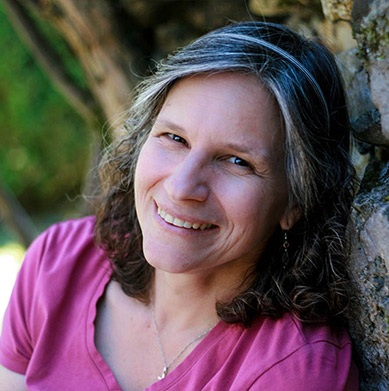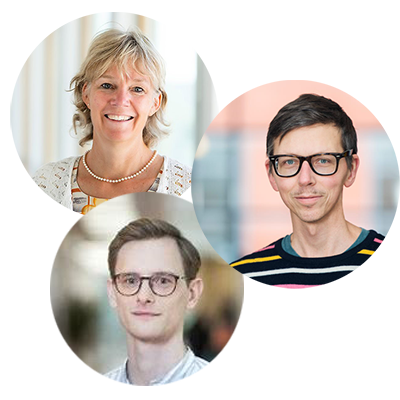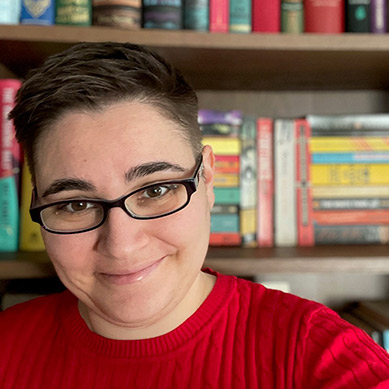Keynotes
Här presenteras konferensens keynotes.
Marie Paretti
Engineering Education and the Future: What are we preparing students for?
Marie C. Paretti is a Professor of Engineering Education at Virginia Tech, where she is Associate Director of the Virginia Tech Center for Coastal Studies and Education Director of the interdisciplinary Disaster Resilience graduate program. She holds a B.S. in chemical engineering and an M.A. in English from Virginia Tech and Ph.D. in English from the University of Wisconsin-Madison. Drawing on theories of situated learning and social construction, her work includes multiple NSF-funded studies on the teaching and learning of communication, effective teaching practices in design education, the effects of differing pedagogies on personal and professional identities, the dynamics of cross-disciplinary collaboration in academia and industry, and gender and race in engineering.
Keynote abstract
Engineering education has long positioned itself as a way to prepare graduates for engineering work; as a result, both educators and industry professionals continually focus on what skills and attributes need to be successful in the contemporary workplace. But the work of engineering has not always taken the future into account; many of the challenges we currently face in terms of climate change as well as social and economic injustices, stem in part from products, processes, and systems designed, implemented, and maintained by engineers and the companies that employ them. And while we hope that teaching emerging engineers to be more conscious of the social, cultural, and environmental implications of their work can propel change, research on engineering work suggests that the economic drivers and organizational structures of many companies makes change difficult. At the same time, not all graduates of engineering programs go into engineering workplaces; in the U.S., for example, they may go on to become teachers, lawyers, government analysts, or a whole range of other fields in the public or private sectors. In light of these and related issues, I will draw on recent studies of graduates’ transition to engineering work ask us to think more about what exactly we are preparing our graduates for, and how we might effectively undertake such preparation.
Lena Gumaelius, Marcus Bjelkemyr och Eric Svanelöv
Utmaningsdriven utbildning, ett sätt att möta stora samhällsutmaningar
Lena Gumaelius är företåndare för Global Development Hub där hon arbetar med utveckling av ingenjörsutbildning och innovation i Afrika. Hon hade tidigare rollen som prorektor på Mälardalens universitet och har verkat som chef under många på KTH där hon bl.a. var ansvarig för att bygga upp KTHs lärarutbildningar. Lena är i grunden civilingenjör i kemiteknik och har bedrivit forskning om teknikundervisning och ingenjörsutbildning och även inom vattenrening, både i svenska och afrikanska vatten.
Med i denna Keynote är även Marcus Bjelkemyr (MDU) och Eric Svanelöv (MDU). Marcus är adjunkt inom informationsdesign och programansvarig för Internationella masterprogrammet i Innovation och design. Han är civilingenjör inom maskinteknik, disputerade inom produktionssystem vid KTH och är tidigare avdelningschef för Informationsdesign. Marcus har utvecklat utbildningsprogram på både kandidat och masternivå, samt drivit forskningsprojekt kopplade till högre utbildning.
Eric är lektor och doktor i socialt arbete och processledare på Samhällskontraktet där han driver utveckling av forskning och utbildning med fokus på samverkan för att skapa samhällsinnovation med stark impact. Erik är i grunden idrottspedagog och har jobbat som lärare på sjuksköterskeprogrammet och socionomprogrammet.
Keynote abstract
Omställningen för en hållbar framtid är en stor samhällsutmaning där universiteten har en betydande roll. Med konkreta exempel från KTH:s Global Development Hub och Mälardalens universitet beskriver denna presentation hur utmaningsdriven utbildning kan vara ett sätt att ta sig an den transformation som krävs. KTH:s Global Development Hub är ett initiativ där studenter och lärare från Afrika och Sverige tränar sig i att utveckla innovativa lösningar på de aktuella stora samhällsutmaningarna. Presentationen belyser även i mer generella termer hur utmaningsdriven utbildning kan vara en metod i arbetet mot en mer hållbar framtid både nationellt och globalt. En förhoppning är att denna keynote inspirerar till fortsatt diskussion om hur vi kan utveckla detta arbetssätt på våra olika universitet och för det ändamålet erbjuds ett rundabordssamtal under konferensens andra dag.
Virginia Grande
The (un)intentional and (un)aware role modeling of engineering educators”.
Virginia Grande is a postdoctoral researcher at UpCERG, the Uppsala Computing Education Research Group. After a five-year degree in computer engineering, Virginia completed a Ph.D. in computing education. Their Ph.D. thesis is on role modeling in computing and engineering education. Besides work on role modeling of care and emotions, the main outcome of the thesis is a framework that supports reflections on role modeling through lenses such as awareness and intention, what one can model, and the main actors in this phenomenon, particularly educators and students.
Keynote abstract
All educators are potential role models for their students. This is so regardless of the length of our teaching experience (from teaching assistants to senior lecturers), whether we are aware of what we are role modeling, and whether we intend for this to be imitated.
In a structured manner, we can then reflect on role modeling from these perspectives of awareness and intention, what one can model, and the main actors in this phenomenon. This keynote aims to spark a discussion on the complexity of role modeling in engineering education, what our role in this is as educators, and how we can apply the result of these reflections to our own disciplines and contexts, discuss with colleagues, and guide our students in similar reflections.



